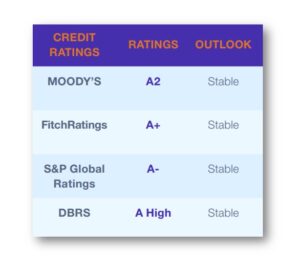The international ratings recently issued by the most important agencies confirm the state of health of Malta and its attractiveness for foreign investors.
Some of the main factors that support Malta's ratings are a pre-pandemic record of strong growth and sizeable debt reduction, a high per-capita income and inflation which currently is the lowest rate in the eurozone behind France and Spain. Malta recorded one of the quickest recoveries in the EU due to government support and a stronger-than-expected recovery in foreign tourism.
It's economic growth, with the current GDP forecast of 3.7%, is projected to significantly outperform the eurozone average. The local financial sector continues to represent one of the pillars of the jurisdiction's economy, especially with regards to the fund industry and the capital markets.

About the labour market, Malta has demonstrated a remarkable degree of resilience amid the Covid-19 and energy crises: the current unemployment rate is limited to the 3%.
In June 2022, the Financial Action Task Force (FATF) decided to remove Malta from its "Grey list". Malta had been on the list for less than one year, limiting any negative repercussions for its economy as evidenced by the positive performance in the financial sector. Malta is also working hard to improve its anti-money laundering measures and approach to good governance, which will strengthen the country’s reputation on the international scenario.